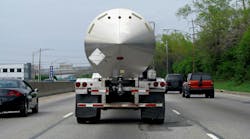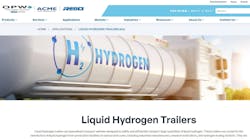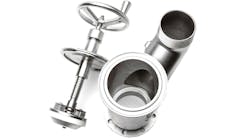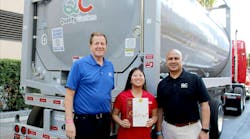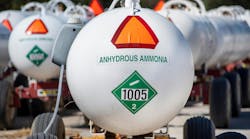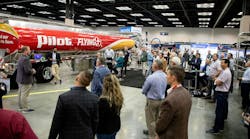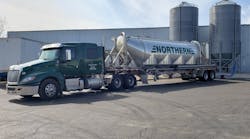This Year'S Congress will find many transportation issues carried over from the year before, according to Tim Lynch of the American Trucking Associations.
Lynch presented an economic outlook at the National Tank Truck Carriers Maintenance Seminar October 27-29, 2008, in Louisville, Kentucky. He said that Democrats are leading a more activist government than has been in place in decades. Expect Congress to try to pass laws in safety, labor, environment, energy, and banking.
“Many of these issues become intersected and intertwined,” he said. “The agenda for 2009 is going to be action packed.”
One example of the intertwining comes from highway program financing that is based on fuel tax collections. Because of the high price of fuel in 2008, there was a drop in vehicle miles traveled, resulting in less fuel used and fewer fuel taxes collected. “That has a significant impact on our being able to fund the highway program,” Lynch pointed out.
The highway program comes up for reauthorization this year and could cost as much as $550 billion if some state organizations have their way. “Reauthorization will be one of the hottest debates,” he said, noting that pork barrel projects are likely to be attached to the legislation that don't improve the highway system.
Also on the congressional agenda is labor legislation that includes the “card check” rule that would eliminate the need to have a secret-ballot election within a company to determine union certification. If the rule is approved, organizing could be accomplished with 50% of employees signing on. “This is a huge issue,” Lynch said. “It will be one of the first bills taken up in the new Congress.”
Also taking priority in debate will be legislation related to transportation safety. Efforts will be made to close a hole in drug and alcohol testing that now prevents the records of someone who has tested positive in a one pre-employment situation to be available for a second prospective employer.
In addition, ATA is supporting a move to set a maximum speed limit of 68 miles per hour for trucks. Others are championing tax credits for equipment that provides environmental protection, as well as safety devices for vehicle stability and cross-lane avoidance.
